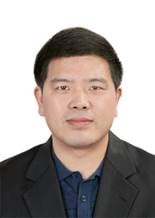
| Prof. Saad MekhilefSwinburne University of Technology, AustraliaUniversiti Malaya (UM), Malaysia Prof. Dr. Saad Mekhilef is an IEEE and IET Fellow. He is a Distinguished Professor at the School of Science, Computing and Engineering Technologies, Swinburne University of Technology, Melbourne, Australia, an Honorary Professor at the Department of Electrical Engineering, University of Malaya, and a distinguished visiting professor at the Institute of Sustainable Energy, Universiti Tenaga Nasional, Malaysia. He authored and co-authored more than 800 publications in academic journals and proceedings, five books with more than 60,000 citations, an H-index of 113, and more than 85 Ph.D. students who graduated under his supervision. He serves as an editorial board member for many top journals, such as IEEE Transactions on Power Electronics, IEEE Open Journal of Industrial Electronics, IET Renewable Power Generation, E-Prime, Journal of Power Electronics, and International Journal of Circuit Theory and Applications. Prof. Mekhilef has been listed by Thomson Reuters (Clarivate Analytics) as one of the world's Highly Cited (World's Top 1%) engineering researchers. He is also listed in the world's top 2 % of scientists by Stanford University, USA. He is actively involved in industrial consultancy for major corporations in Power Electronics and Renewable Energy projects. His research interests include Power Conversion Techniques, Control of Power Converters, Maximum Power Point Tracking (MPPT), Renewable Energy, and Energy Efficiency. |
| Prof. Qianzhi ZhangZhejiang University, ChinaQianzhi Zhang received the Ph.D. degree in electrical engineering from Iowa State University, Ames, IA, in 2022.From Oct. 2024 to now, heis the ZJU100 Young Professor with the College of Electrical Engineering, Zhejiang University, Hangzhou, China. From 2022 to 2023, he was an Ezra Systems Postdoctoral Fellow with Cornell University, Ithaca, NY, USA, and an Assistant Professor with the University of Alabama, Tuscaloosa, AL, USA, from 2023 to 2024. His research interests include voltage/var control, power/energy management, system resilience enhancement, vehicle electrification, and the applications of advanced optimization and machine learning techniques in power system operation and control. He was the recipient of the Outstanding Reviewer of IEEE Transactions on Power Systems in 2019, 2022, and 2023, and IEEE Transactions on Smart Grid in 2021. He is also an Associate Editor for IET Smart Grid and Energy Storage and Applications. |
| Prof. Zhen ZhangZhengzhou University, ChinaProf. Zhang has led over 120 national and provincial-level scientific research projects, including the National Key R&D Program Project "Public Safety Risk Prevention and Emergency Technology Equipment" Key Special Project, the Henan Province Major Public Welfare Special Project "Regional Public Security Prevention and Control and Strike Disposal Technology Comprehensive Application Demonstration", and the Henan Province Key R&D Special Project "Key Technology Research and Demonstration Application of Gas Pipeline Network Safety Operation Monitoring". As the project leader, Received awards such as the Second Prize for Science and Technology Progress in Henan Province, the First Prize for Science and Technology Achievements in the Provincial Information Industry, the Lifetime Achievement Award for Digital Management in Henan Province, and the Outstanding Contribution Award for Security in China; authorized 7 national patents, published 12 books, published 90 papers, and included 30 papers in SCI/EI; Has been awarded multiple honorary titles, including National Graduate Scholarship Advisor, Innovation Leader of Zhengzhou's "Smart Zhengzhou·1125 Talent Plan", "Outstanding Contributor of China's Smart City", "Outstanding Scientist of China Electronics Society" and "China Security Outstanding Contribution Award". |
| Prof. Yujian YeSoutheast University, ChinaYujian Ye received the B.Eng. (Hons) degree in Electrical and Electronic Engineering from Northumbria University, Newcastle Upon Tyne, U.K., in 2011, and the M.Sc. degree with Distinction in Control Systems and the Ph.D. degree from Imperial College London, London, U.K., in 2013 and 2017, respectively. He performed Postdoctoral research also with Imperial College London from 2016 to 2020, and then joined Southeast University, Nanjing, China with Associate Professorship in 2021. He is currently a Professor with Young Endowed Chair Honor with the School of Electrical Engineering at Southeast University and an Honorary Lecturer at Imperial College London. His research interests include development and application of novel data analytics and artificial intelligence techniques in low-carbon energy-transportation-information systems modeling, analysis and control, and optimization of economics of power system operation and planning. |
| Prof. Dongshu WangZhengzhou University, ChinaDonshu Wang, Ph.D., doctoral supervisor, Professor in School of Electrical and Information Engineering, Zhengzhou University, visiting scholar of Department of Computer Science and Engineering, Michigan State University. He is mainly engaged in the research of robot autonomous mental development, machine learning, artificial intelligence, brain-inspired computing, and intelligent control of robot. He has presided over and participated in 4 projects of the National Natural Science Foundation, participated in 2 projects of the National Key Research and Development Plan of the Ministry of Science and Technology, presided over 4 provincial scientific research projects, presided over and participated in more than 10 enterprise cooperation projects. As the first author and corresponding author, he has published more than 70 SCI/EI papers in well-known journals, such as IEEE TNNLS, IEEE TCDS, IEEE TAI, IEEE TITS, Information Sciences, Pattern Recognition, Control Theory and Applications, Control and Decision, etc, including 6 top journals in the 1st district of the Chinese Academy of Sciences, 7 long articles in IEEE Transactions, H-index 15, 2500+ cited papers, and 2 highly cited papers. |




